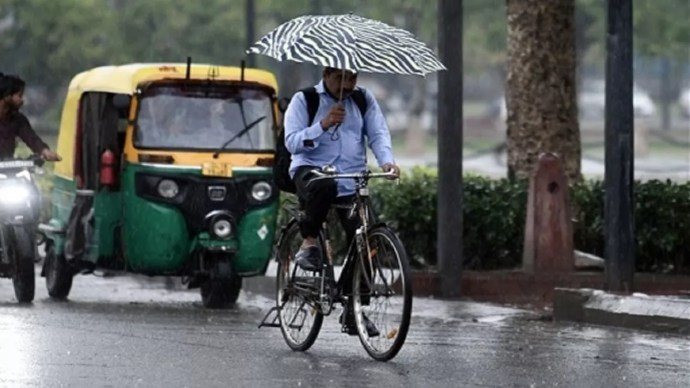As preparations ramp up for the annual Amarnath Yatra, commencing on July 3, security agencies in Jammu and Kashmir are prioritizing the safety of pilgrims following the recent terror attack in Pahalgam. The government and security forces are committed to ensuring a peaceful pilgrimage, with extensive measures being implemented across the Union Territory.
At both base camps—Baltal in Sonamarg and Nunwan in Pahalgam—efforts are underway to create comfortable accommodations for Yatris. Unlike previous years, when temporary tent structures were used, this year will see the establishment of proper facilities designed to enhance the overall experience for pilgrims. Work is ongoing around the clock to ensure these structures are ready in time.
The Jammu and Kashmir government is optimistic that this year’s Yatra will attract a large number of devotees, signaling a potential revival of tourism in the UT. Farooq Abdullah, President of the Jammu and Kashmir National Conference (JKNC), expressed hope that pilgrims would return home with positive stories about the beauty and peace of Kashmir. “The Yatra is starting, and we are hopeful for meeting Bholenaath. A lot of people will come, and once they go back from here, they will tell everyone that Kashmir is peaceful and beautiful,” he said.
In preparation for the pilgrimage, various government departments have been coordinating efforts to address key issues such as security, traffic management, accommodation, registration facilities, sanitation, and fire safety measures. To bolster security, forces have intensified their presence along the highway connecting both base camps in Anantnag and Ganderbal districts.
A state-of-the-art Hi-tech Command Control Centre will be established to facilitate real-time surveillance along the Yatra routes. This center will employ around 60 personnel from approximately 20 government departments, including Jammu and Kashmir Police, CRPF, NDRF, SDRF, Health, PHE, PDD, and Telecom. Chief Minister Omar Abdullah emphasized the government’s commitment to ensuring a safe pilgrimage experience: “Our effort will be that the Yatra passes off peacefully and that the Yatris who come for Puja complete the Yatra and return home safely.”
High-definition PTZ cameras will be strategically placed along the routes from both base camps to the holy cave, supplemented by static cameras at critical points. In case of emergencies or natural disasters, rapid response teams from various security agencies will be deployed at key junctures to provide immediate assistance to Yatris.
Additionally, all registered pilgrims will receive RFID (Radio Frequency Identification) tags to monitor their locations throughout the journey. This measure aims to enhance safety and ensure that authorities can quickly respond to any incidents.
The locals of the Kashmir Valley are also optimistic about the Amarnath Yatra, despite being severely affected by the recent terrorist attack in Baisaran, Pahalgam. A pony service provider named Sahil Ahmad Bhat said that there has been no business in Pahalgam since the Baisaran attack, but he is hopeful that the Amarnath Yatra will help restore their livelihoods. “We are here for the protection and service of Amarnath pilgrims; they should visit without any fear or worries,” he said. Local businesses, including hoteliers and other service providers, are pinning their hopes on the Amarnath Yatra to help rebuild tourists’ confidence and encourage them to return to the Valley.
With these comprehensive preparations in place, the Jammu and Kashmir government is determined to make this year’s Amarnath Yatra a safe and memorable experience for all participants.
Also Read: Post Operation Sindoor, Civil Defence Gears Up With Mock Drill Along Pakistan Border












